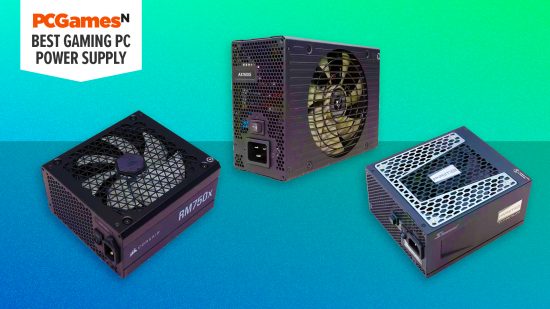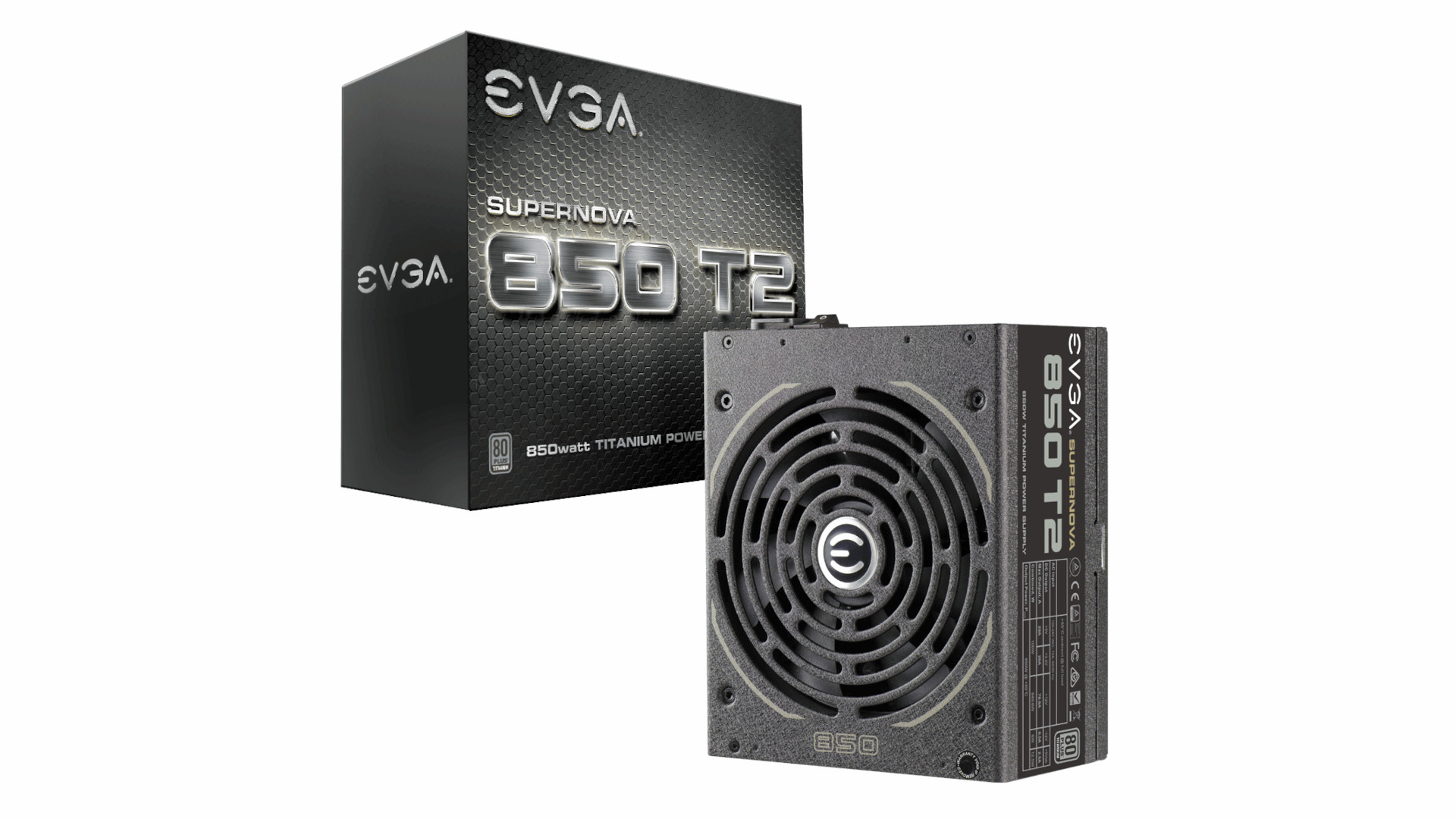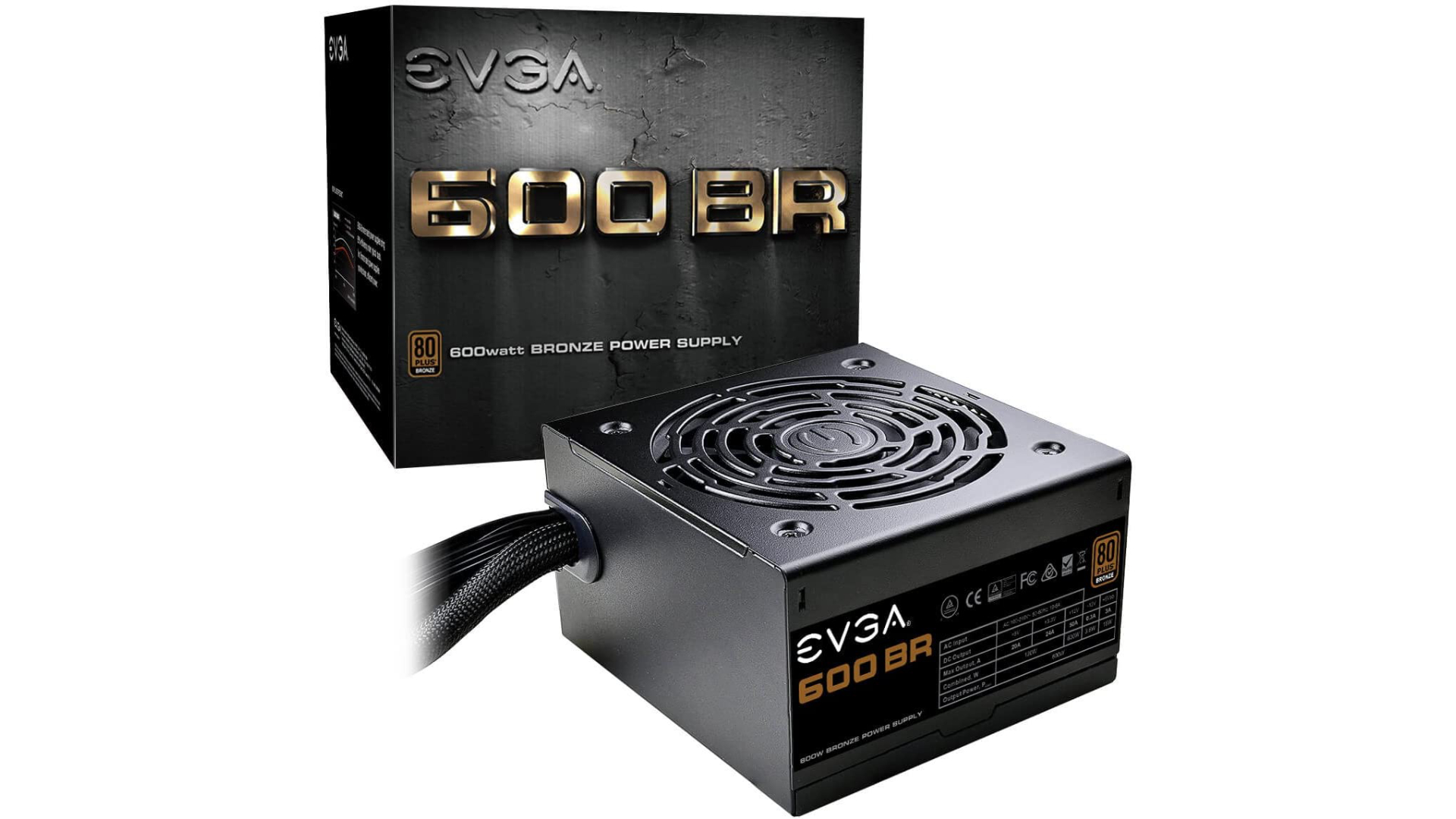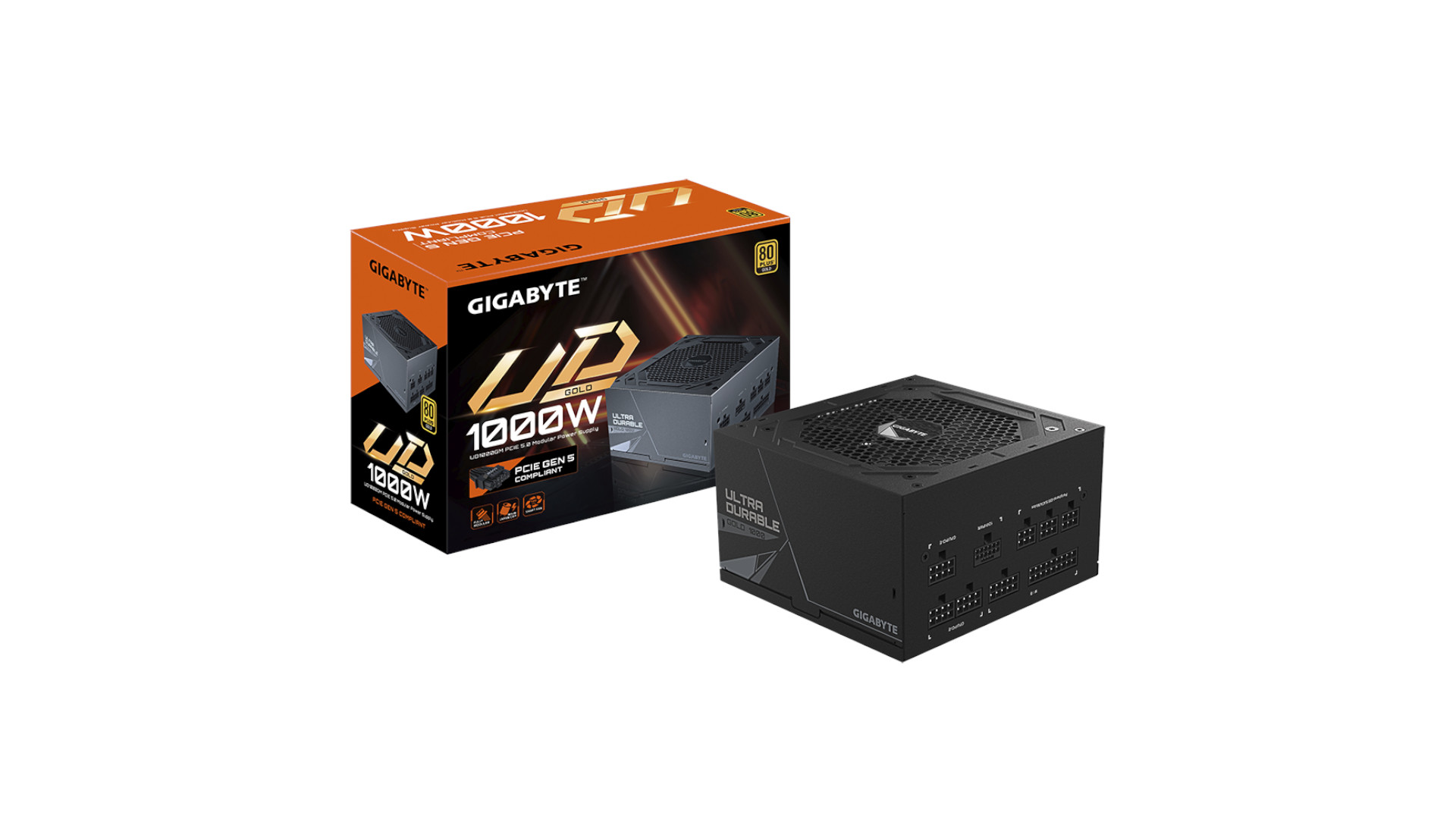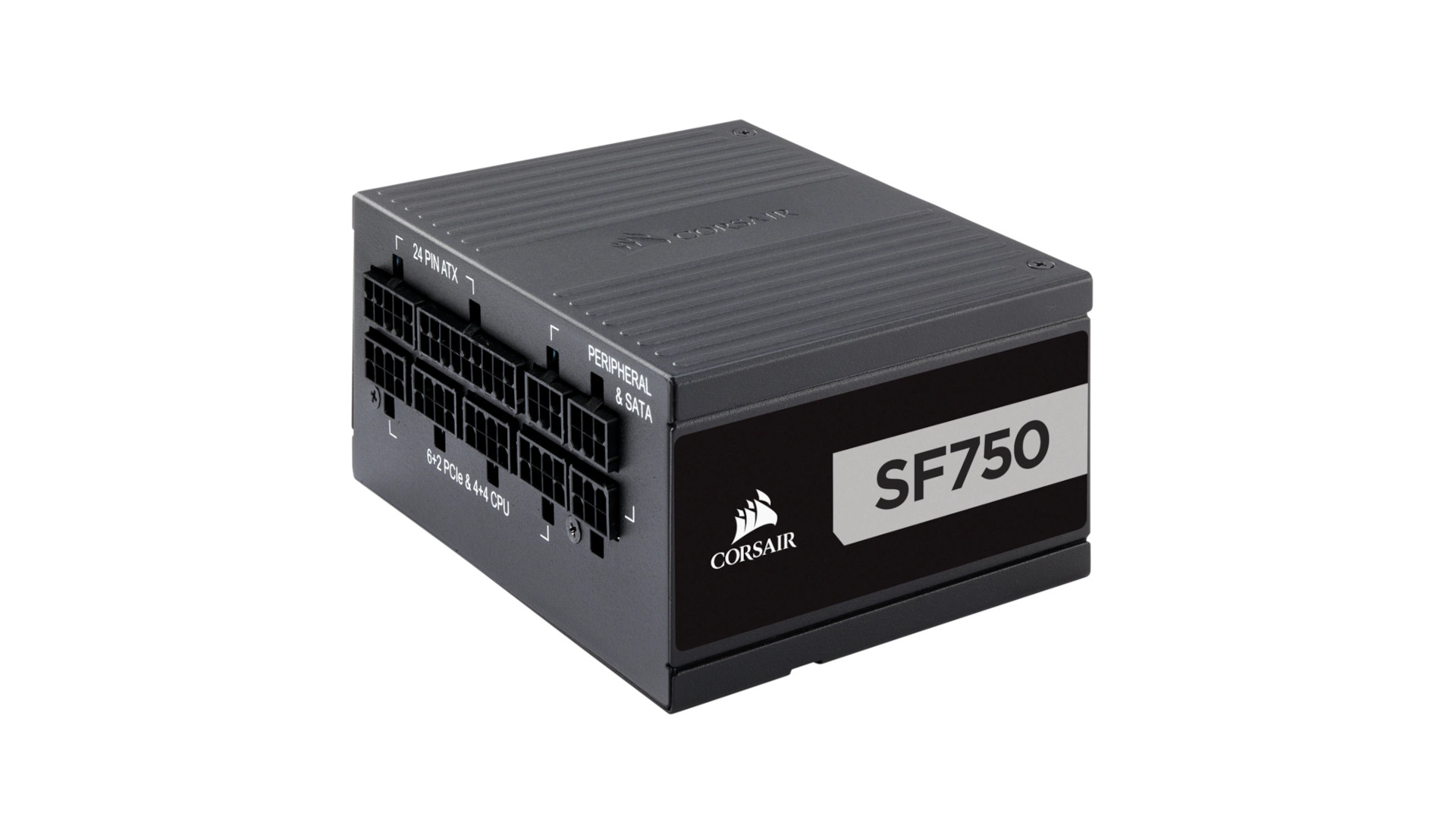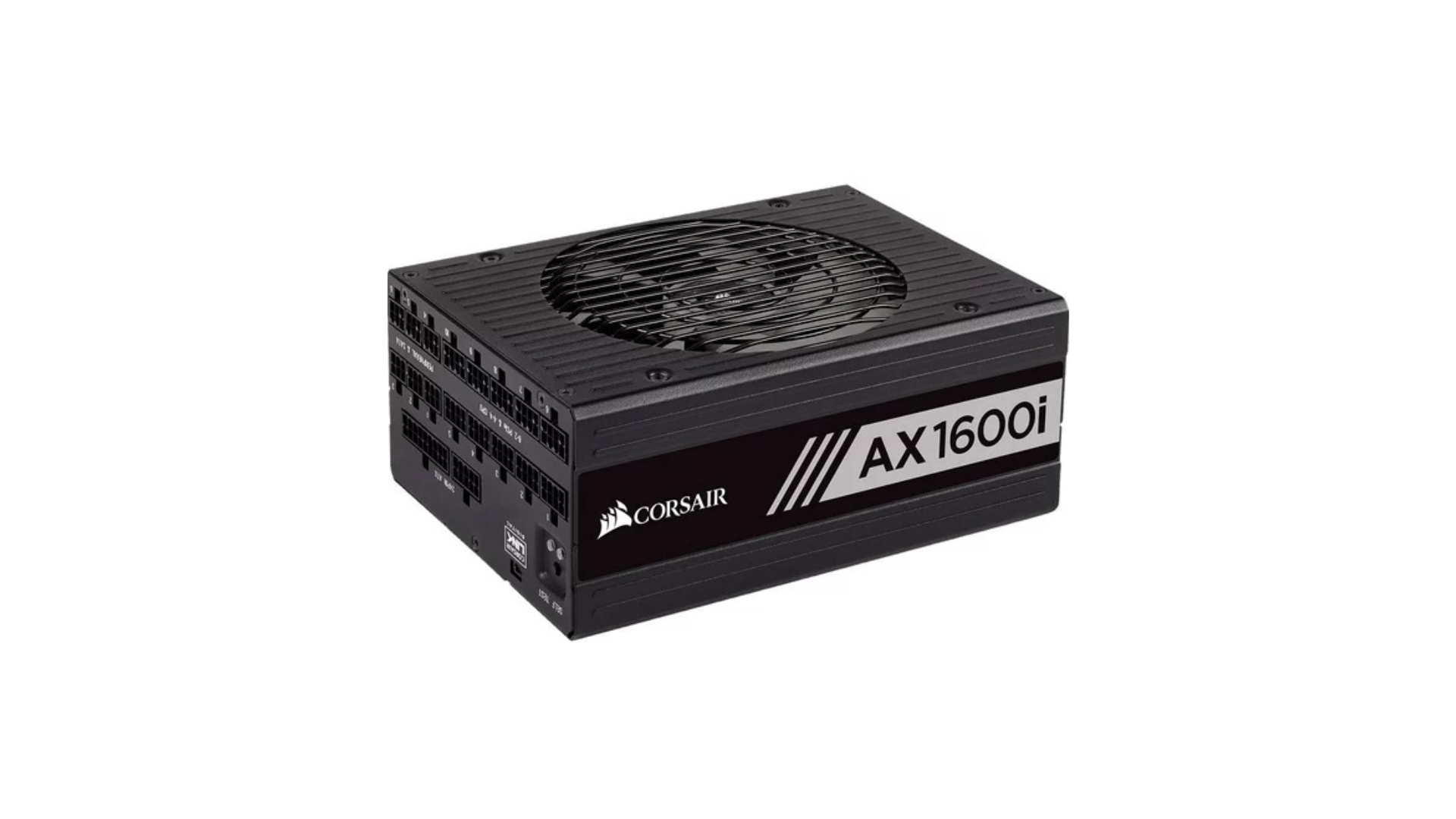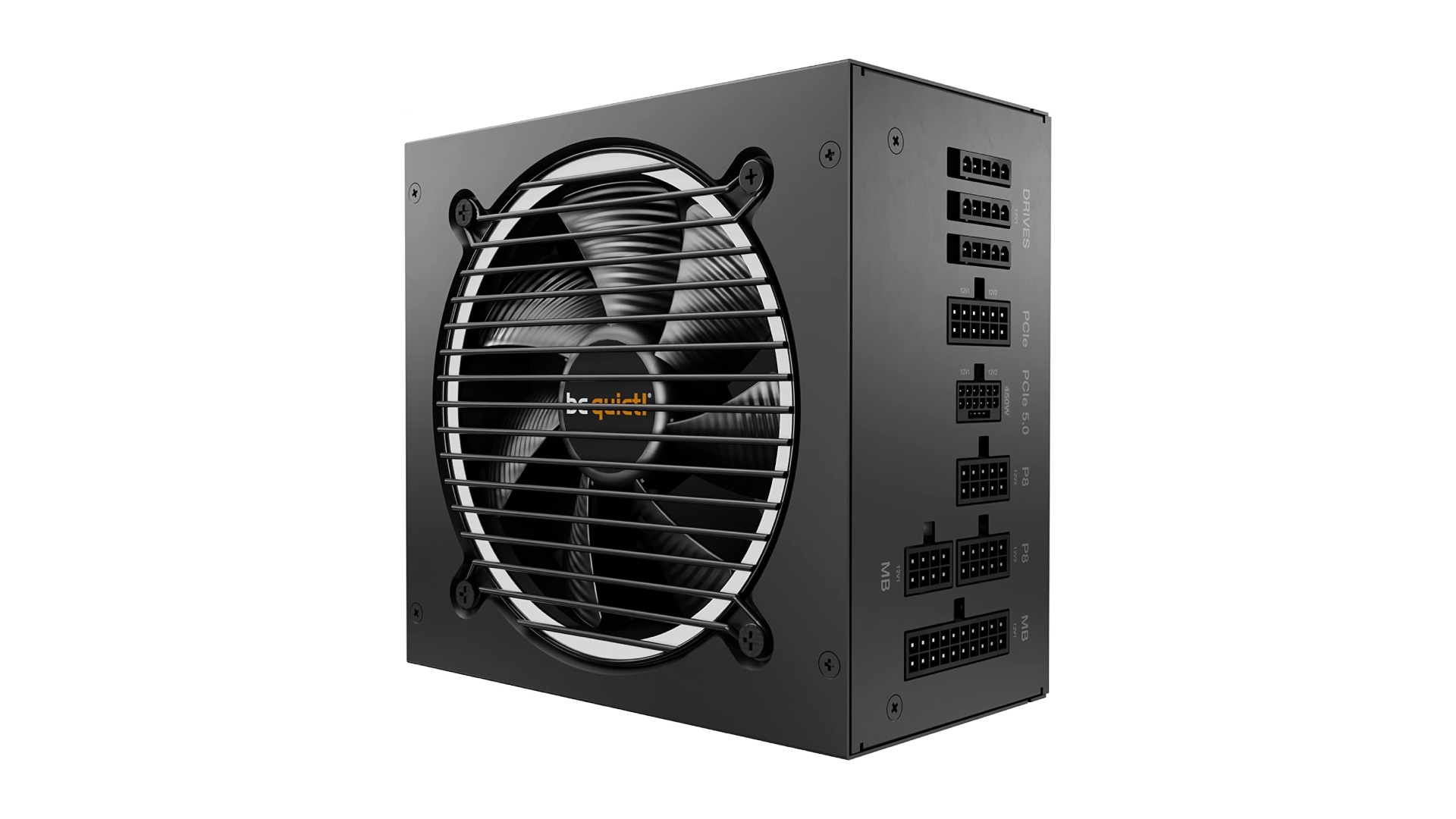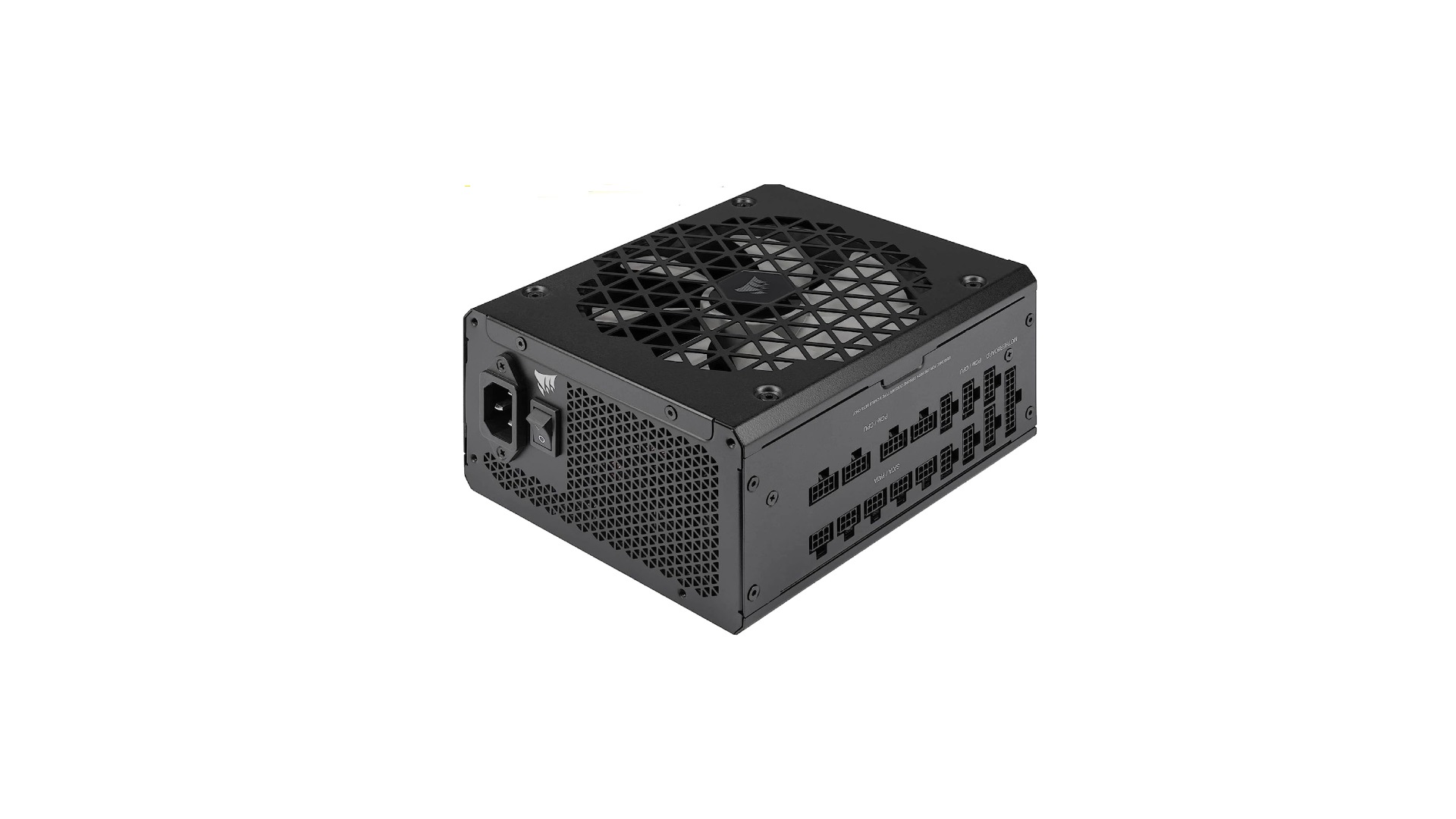The best power supply for PC gaming can make an enormous difference to the operation of your machine. The Power Supply Unit (PSU) converts electricity from the power outlet into usable power to ensure that all your components get the power they need to function.
If you invest in a quality power supply, it’ll likely become the longest-standing member of your rig throughout years of upgrades as you turn your tower into the best gaming PC. You might not consider it to be a critical part of your PC, but if the gaming CPU effectively acts as the brain, then a PSU is the heart of your rig. These are the best power supply for your gaming PC with our recommended options.
Why you can trust our advice ✔ At PCGamesN, our experts spend hours testing hardware and reviewing games and VPNs. We share honest, unbiased opinions to help you buy the best. Find out how we test.
Best power supply for PC gaming:
EVGA Supernova 1000G
The best power supply for most
EVGA Supernova 1000G specifications:
| Watts (W) |
1,000 |
| Form factor |
ATX |
| Connectors |
24-pin ATX (x1) / CPU 4+4-pin (x2) / PCle 6+2-pin (x6) / PCle 16-pin (x1) / SATA (x12) / 4-pin peripheral (x4) |
| 80 Plus Certification |
Gold |
| Cooling |
135mm fluid dynamic bearing |
| Noise level (dB(A)) |
27.7 |
| Warranty |
3 year |
Reasons to buy
- 80 Plus Gold certification
- Enough power for the latest graphics cards
Reasons to avoid
- Pricey
- Warranty could be longer
The EVGA Supernova 1000G is a fantastic PSU that, while not the most powerful on the market, should serve the majority of PC gamers perfectly. Its 80 Plus Gold certification means that it’s 87% efficient or higher under typical loads, only putting it behind those with Platinum or Titanium certification. This means that the power supply wastes very little energy, resulting in less excess heat and cooler operating temperatures.
It’s fully modular, so you only need to route the cables necessary to power your system. It’s also built with Japanese Nippon Chemi-Con capacitors, making this PSU an ever-reliable part of any rig. Admittedly, you’ll find a longer warranty period with other products, but three years should still be fine for most people.
EVGA 600 BR
Good value power supply
EVGA 600 BR specifications:
| Watts (W) |
600 |
| Form factor |
ATX |
| Connectors |
24-pin ATX (x1) / CPU 4+4-pin(x2) / SATA (x6) / 4-pin peripheral (x3) |
| 80 plus certification |
Bronze |
| Cooling |
120mm long sleeve bearing |
| Noise level (dB(A)) |
33 – 34 |
| Warranty |
3 years |
Reasons to buy
- 600W for less than $65 USD
- Enough juice for an Nvidia RTX 3060 Ti
Reasons to avoid
- Not modular
- Not enough power for the Nvidia RTX 3070 or above
Costing just under $65 (£80), the EVGA 600 BR is undoubtedly one of the best-value PSUs available on the market for budget-conscious builders. Despite its cheaper price point, this power supply doesn’t skimp on 80 Plus Bronze certification, meaning it’s by no means wasteful – just not the biggest fish in the pond.
The EVGA 600 BR should have no trouble fitting into almost all ATX PC cases, thanks to its 150mm long shell being around the standard power supply size. A three-year warranty should help with any concerns surrounding this power supply’s reliability.
Gigabyte UD1000GM PG5
Top 1,000W power supply
Gigabyte UD1000GM PG5 specifications:
| Watts (W) |
1,000 |
| Form factor |
ATX |
| Connectors |
20+4-pin ATX (x1) / CPU 4+4-pin (x2) / PCle 16-pin (x1) / PCle 6+2-pin (x4) / SATA (x8)/ 4-pin peripheral (x3) |
| 80 Plus certification |
Gold |
| Cooling |
120mm smart hydraulic bearing (HYB) fan |
| Noise level (dB(A)) |
35 – 40 |
| Warranty |
10 years |
Reasons to buy
- Native support for PCIe Gen 5 16-pin power connector
- 80 Plus Gold certification
- Fully modular
Reasons to avoid
- Noisier than others on this list
The Nvidia RTX 4000 range hasn’t yet hit the 1,000W ceiling, but there’s no telling what the AMD RDNA 3 series is hungry for until Team Red lifts the lid on Radeon 7000 GPUs. If you don’t want to find your power supply trailing behind the times in the coming years, you might need a 1,000W monster, and the Gigabyte UD1000GM PG5 is already prepared for pretty much anything that may come.
It’s already equipped with support for the latest PCIe Gen 5 16-pin power connector, which will likely eventually power every GPU that comes our way in the future. Gigabyte claims that the power supply’s 120mm smart hydraulic bearing fan should last 1.4x longer than a standard sleeve bearing found on some cheaper models. It also comes with plenty of other traits you’d expect from a top-tier power supply, such as 80 Plus Gold certification, a fully modular design, and a 10-year warranty.
Corsair SF750
The best SFX power supply
Corsair SF750 specifications:
| Watts (W) |
400 / 600 / 750 |
| Form factor |
SFX |
| Connectors |
20+4-pin ATX (x1) / CPU 4+4-pin (x2) / PCIe 6+2-pin (x4) / SATA (x8) / 4-pin peripheral (x3) |
| 80 Plus certification |
Platinum |
| Cooling |
92mm fan with Zero RPM Mode Support |
| Noise level (dB(A)) |
28 |
| Warranty |
7 years |
Reasons to buy
- Zero RPM Fan Mode keeps things silent until the PSU hits 40% load
- Included SFX-to-ATX bracket
If you’re building a system in a compact PC case, then the small but mighty Corsair SF750 should be at the top of your list for potential power supplies to juice up your miniature rig. That said, it’ll work great in a bigger ATX chassis too, thanks to the included SFX-to-ATX bracket.
The Corsair SF750’s ‘Zero RPM Fan Mode’ makes sure the PSU doesn’t engage its fan until it has to, keeping things quiet when browsing the web and kicking things into gear when gaming. It’s fully modular too, and its individually sleeved cables make routing them in your gaming PC a breeze. If your computer doesn’t require 750W, consider the less-powerful but less-expensive SF600 or SF400.
Corsair AX1600i
Most efficient power supply
Corsair AX1600i specifications:
| Watts (W) |
1600 |
| Form factor |
ATX |
| Connectors |
20+4-pin ATX (x1) / 4+4-pin ATX (x2) / 6+2-pin PCle (x10) / SATA (x16) / 4-pin Molex (x9) |
| 80 Plus certification |
Titanium |
| Cooling |
140mm Patented FDB cooling fan with Zero RPM Mode |
| Noise level (dB(A)) |
27 |
| Warranty |
10 years |
Reasons to buy
- Highly powerful and efficient
- 80 Plus Titanium certification
- 10-year warranty
Reasons to avoid
- Expensive
- Peripheral connectors quite close together
Though this Corsair power supply will be more powerful than most gamers need, the Corsair AX1600i is the one to go for if you’re building a truly top-of-the-range gaming rig. This is the only PSU on this list to receive the Titanium 80 Plus certification for efficiency.
This comes with a high price tag, but to our mind, it does enough to warrant that. Despite being so powerful, it operates very quietly, even when set to performance mode (which pushes it to its limits). With plenty of connectors and a decade-long warranty, it’s hard to imagine anyone being disappointed by this PSU.
be quiet! Pure Power 12
Best for quiet operation
be quiet! Pure Power 12 specifications:
| Watts (W) |
550 / 650 / 750 / 850 / 1,000 / 1,200 |
| Form Factor |
ATX |
| Connectors |
ATX 20+4-pin (x1), PCIe 6+2-pin (x4), SATA (x6), PATA (x2) |
| 80 Plus certification |
Gold |
| Cooling |
Silence-optimized 120mm be quiet! fan |
| Noise level (dB(A)) |
25.7 |
| Warranty |
10 years |
Reasons to buy
- Fantastically quiet operation
- Gold 80 Plus certification
- Reasonably priced
Though there may be more powerful quiet options out there, we think that the be quiet! Pure Power 12 is the option that will appeal to most gamers. It carries a reasonable price tag, and with Gold 80 Plus certification, you know you’re still getting something impressive under the hood (and there are different models available from 500 – 1200w available to suit your needs).
The housing perhaps feels a little flimsier than you’d find with some of the more premium options on this list, but it’s not something that I’d worry too much about. With a ten-year manufacturer’s warranty, you can count on this to be a quiet and reliable PSU for many years to come.
Corsair RM1200x Shift
The best for easy installation
Corsair RM1200x Shift specifications:
| Watts (W) |
750 / 850 / 1000 / 1250 |
| Form Factor |
ATX |
| Connectors |
20+4-pin ATX (x1) / 4+4-pin ATX (x2) / 12+4-pin 12VHPWR (x1) / PCIe 6+2-pin (x4) / SATA (x12) / PATA (x8) |
| 80 Plus certification |
Gold |
| Cooling |
140mm fan with Zero RPM Mode Support |
| Noise level (dB(A)) at 100% load |
25 – 30 |
| Warranty |
Ten years |
Reasons to buy
- Easy access modular control panel
- Great cable management
Reasons to avoid
- Slightly costly
- May fit properly with certain chassis
Adjusting the earlier Corsair RM1200x range, Corsair released the Shift variant which has the modular control panel shifted to the side of the unit (while it was previously at the back). This makes it a lot easier to get this connected, up, and running in no time. Although, as some chassis feature compartments to the side of the PSU, you might not be able to use it with some setups.
However, if your chassis doesn’t feature a compartment like that, this is an ideal choice – particularly for anyone who’s looking for a relatively simple setup process. Besides the convenience of its control panel, it is also a great option due to its power and efficiency, receiving gold 80 Plus certification.
What is a power supply?
When it comes to PCs, the main power supply unit (PSU) is the box into which you plug a mains power cable that then converts the 120V or 230V alternating current (AC) power from your wall sockets to the direct current (DC) 12V, 5V and 3.3V power required by the components of your PC.
They come in a wide range of power and efficiency ratings that tell you how much power the components of your PC can safely draw from the power supply and how much energy is lost in that conversion process. Most modern power supplies can deliver between 500-1500W and between 80-95% efficiency – 5-20% of lost energy is dispersed as heat.
What is 80 Plus Certification?
80 Plus Certification is something that manufacturers can submit their products to. If they receive the certification, it means that you can count on the product to run to a certain level of efficiency. Here’s the benchmark for each certification:
- Standard certification: 80 – 85% efficiency
- Bronze certification: 85 – 88% efficiency
- Silver certification: 85 – 90% efficiency
- Gold certification: 87 – 92% efficiency
- Platinum certification: 89 – 94% efficiency
- Titanium certification: 90-96% efficiency
If you’re thinking that the overlap of several of these certifications means that you might get a more efficient power supply with bronze certification than with the standard certification, that’s not quite how it works. With any particular setup, a higher certified PSU will always run better than a lower one, the range merely reflects different levels of efficiency when using them in different types of setup.
What is form factor?
The form factor refers to the size of the motherboard in which the power supply will be housed. The majority of the PSUs that we’ve detailed in this list are standard ATX, which will work across most motherboards, though we’ve included one SFX (Small Form Factor) option for anybody working with something that isn’t so big. If you’re shopping for the first time, we recommend double-checking the form factor of your motherboard.
What power supply is needed for RTX 4090 and other high-end components?
The likes of the Nvidia GeForce RTX 4090 and Intel Core i9-14900K can draw huge amounts of power, drawing over 500W from the wall each when pushed to their max. As such, you’ll need at least a 1000W power supply for such high-end components, and ideal at least 1200W.
What size power supply do I need?
Size isn’t the right term when most people talk about power supplies – while PSUs do range in physical size, they’re mostly quite similar. Instead, ‘size’ refers to the power rating of the power supply, and what you need will vary based on your system.
For an entry-level gaming PC with integrated graphics or a graphics card that doesn’t require an extra cable to be plugged into it (so it draws less than 70W) and a CPU that’s six or fewer cores, a quality high-efficiency 500W supply should do the job, though you might want to go for a 650W unit to be on the safe side – especially it’s not 95%+ efficient.
As you buy more powerful components, you’ll have to consider upgrading your power supply, as not only do more powerful chips require more power but graphics cards in particular require specific extra cables. By the time you’re buying an RTX 4070 and an AMD Ryzen 7 7800X3D, you’ll be wanting a 750W supply.
To find out just what sort of supply you’ll need, check the specifications of your other components and add up the total peak power draw. It doesn’t need to be exact but if your chosen CPU can draw over 350W alone, a 400W power supply probably won’t be enough.
Many manufacturers and retailers have power calculators that can estimate how much power your system will need. Here are a few:
What type of power supply is the most efficient?
No power supply will ever be 100% efficient, because it is not possible to avoid losing power in the process of converting AC power from the wall into the DC power that your gaming PC uses to function. The highest level of efficiency that you can expect is around 96% and you can use a product’s 80 Plus certification to determine its efficiency.
